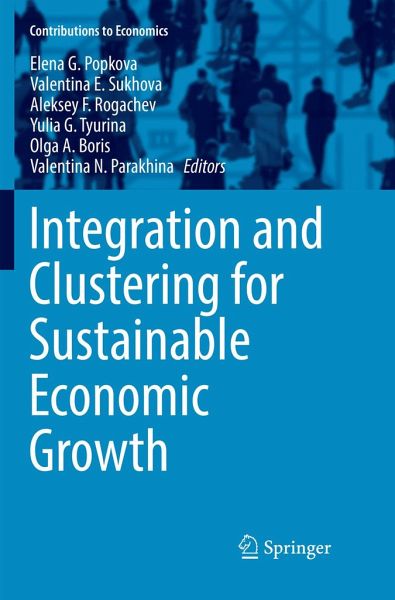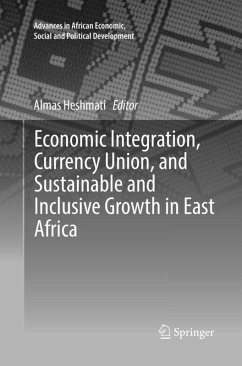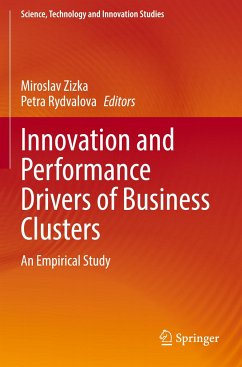
Integration and Clustering for Sustainable Economic Growth
Versandkostenfrei!
Versandfertig in 6-10 Tagen
151,99 €
inkl. MwSt.

PAYBACK Punkte
76 °P sammeln!
This book describes the importance of integration and clustering in creating sustainable economic growth. Modern economic conditions demonstrate the need for governmental stimulation of cluster initiatives in entrepreneurship, and make it necessary to study the experience of developed countries in the sphere of stimulation of cluster initiatives in entrepreneurship, and to offer recommendations for improving the system of state stimulation of these initiatives. The authors conclude that at present, innovational economy is an economic system that functions on the basis of business networks, as ...
This book describes the importance of integration and clustering in creating sustainable economic growth. Modern economic conditions demonstrate the need for governmental stimulation of cluster initiatives in entrepreneurship, and make it necessary to study the experience of developed countries in the sphere of stimulation of cluster initiatives in entrepreneurship, and to offer recommendations for improving the system of state stimulation of these initiatives. The authors conclude that at present, innovational economy is an economic system that functions on the basis of business networks, as this model offers innovational cooperation between specialists from various scientific and technical spheres, between organizations of various sizes (large, medium, and small), and between groups of various types of companies. Cluster strategy in modern global practice is one of the most important tools of public policy for increasing the competitiveness of national economies. This means that the most competitive spheres develop on the basis of the cluster principle, and support for cluster building increases a country's economic competitiveness.














